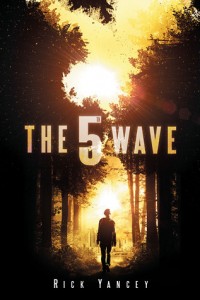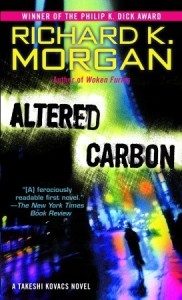 Title: Frankenstein (1818 Edition) (Goodreads)
Title: Frankenstein (1818 Edition) (Goodreads)
Author: Mary Shelley
Published: Oxford World's Classics, 1818
Pages: 261
Genres: Classic, Gothic, Science Fiction
My Copy: Audiobook
Buy: Amazon, Book Depository, Kindle (or visit your local Indie bookstore)
Victor Frankenstein is a student of science, obsessed with discovering the cause of life. One night he bestowed animation upon a lifeless matter and created a monster. He recoils from his hideous creation and the monster is cast out and left tormented by isolation and loneliness. Evil is unleashed and a campaign for vengeance against Frankenstein has begun.
Most people are aware of my passion for Frankenstein, I may not read it every year but I do come close. Picking up this book is like coming home, the joy that sweeps over me as I emerse myself into the text is indescribable. Have you ever had that feeling where a book can bring you so much joy, I even have to buy different versions of this novel just to have on my self. I have some rather handsome editions; a leather-bound copy, an annotated edition and a nice illustrated hardcover released by Dark Horse Comics.
So imagine my shock to discover that the audiobook I was listening to was a little different to the novel I was accustomed to. With a little research I discovered Dan Stevens (the narrator, yes the one from Downton Abbey) was reading from the 1818 edition. Not the heavily revised 1931 version, which is most commonly printed. I didn’t even know there were two different versions; this was an exciting day for me. Not only can I continually read Frankenstein and gain immense pleasure from it, but I can also switch between two different versions of the story.
I was familiarising myself with the text of Frankenstein for a university course, so I had decided to look at the book a little differently. For an older review, one I still think is pretty good click here. I knew a little more about Mary Shelley this time, so I was looking at Frankenstein with some context. Before Shelley wrote Frankenstein she had given birth to a daughter, two months premature. This daughter only lived a few weeks, a year later she gave birth to William Shelley. After the birth of her son she suffered from postpartum depression.
The birth of William happened a few months before the story of Frankenstein was conceived, so it wasn’t too surprising to see William’s name in the novel. William was Victor Frankenstein’s youngest brother, who was strangled to death by the monster. So I have two lines of thought here, one being that Mary Shelley’s depression manifested an urge to strangle William, the second is a little more complex.
I want to skip over the whole parody of creationism within Frankenstein, which would have to be an entirely different blog post (maybe when I read it next time). Life was created (without the need of a female) and then rejected. He has no loving mother; he is born fully grown but still has the intelligence of an infant, he was rejected before he could learn about the world. Again I’m left with two thoughts, is this about growing up without a mother or was this rejection of her child? I’m not really good at forming arguments (something I need to learn) but I wanted to leave you with those thoughts, and one other. In a journal entry in 1915 Mary Shelley wrote about the death of her first child, and being tormented by the idea of it coming back to life.
You know that “never meet your idols” phrase? I never really understood it; sure Mary Shelley wasn’t a ‘nice’ person but who is? She was tormented and complex and from that sprung forth a novel with so many layers that you could write a book on it. This was what made her my literary idol, not being a good person. I know I will keep reading this novel and try to write a review on each different perspective I find. Who knows it could make up and interesting collection of posts. Look for my next Frankenstein post (possible next year), not sure what it would be about; Creationism, Paradise Lost, Feminism, Slavery, Revolution, or something else. If you haven’t experienced the joys of a book so complex and layered, don’t you think it’s time you did so?

 Title: The Explorer (
Title: The Explorer ( Title: Cat's Cradle (
Title: Cat's Cradle ( Title: Consider Phlebas (
Title: Consider Phlebas ( Title: The Shining Girls (
Title: The Shining Girls ( Title: The 5th Wave (
Title: The 5th Wave ( Title: Altered Carbon (
Title: Altered Carbon ( Title: Retribution Falls (
Title: Retribution Falls ( Title: The Age Atomic (
Title: The Age Atomic ( Title: The Last Policeman (
Title: The Last Policeman (